Earlier this week I left China with a mixture of relief and sadness. I was glad to escape the crowds, the pollution, and the silent threat of the Communist Party lurking beneath the surface. I was tired of being stared at everywhere I went, tired of breathing dirty air, tired of the frustrating vagaries of the great Chinese internet firewall.
But my departure was also bittersweet, because I had gained a glimmer of insight into modern life in China, and I wanted more. I was lucky enough to meet and spend time with several wonderful Chinese people over the course of my travels, and our conversations touched me deeply. There was the bike shop owner in Guilin who had bike toured all over Southeast Asia, an experience that opened his eyes to his homeland's political situation and converted him to a Buddhist and truth seeker. In Shanghai, I met another young Buddhist convert, an artist who was seeking to bring back the Buddhist artistic traditions lost in the Cultural Revolution. Also in Shanghai, I met a former professor from Beijing who was imprisoned and tortured after the Tiannanmen Square protests. He was the only person I met who was old enough to remember the horrific events of the Mao era, spoke English and was willing to talk about them. His story left me shaking.
In Nanning, I was welcomed by the family and friends of my father's wife. They took care of me like family, fed me, showed me around their city and refused to let me pay for anything, though I knew they could scarcely afford it.
Then there was the aspiring capitalist from Wuzhou who went out of his way to help me when my bike broke down in the middle of rural Guanxi. He was just out for a day trip in the mountains on his motorcycle, but when he realized my situation he spent the rest of his day helping me. Together we rigged a temporary fix to my bike and he stayed with me while I limped to the nearest town, rolling slowly along on his motorcycle. Once we arrived in town, he found me a mechanic, food and a place to sleep. At first I suspected ulterior motives, but they never materialized. He was just an extremely kind person. He spoke no English, but thanks to an smart phone translator app we were able to talk at length about the protests in Hong Kong, what life in America is really like, and the prospects for young, ambitious people like himself in China. He said that he feared the Chinese were destined to be “the last enslaved people on the planet.”
It was a sentiment I heard from others as well, and I found it deeply disheartening. To meet such wonderful, generous, and smart people and realize the frustration and hopelessness they felt — it was awful.
I had read about the cultural revolution, great leap forward and the rest of it, but it was still eye-opening to talk with everyday Chinese people and hear how their lives have been shaped by that terrible history and everything that came since, even those who were born after Mao's death. During my time in China I also read “Becoming Madame Mao” by Anchee Min, a very readable history about the life of Jiang Ching, Mao's wife and scapegoat for the horrors of the cultural revolution.
It's hard not to wonder, what would China be like if Chiang Kai Shek and the Kuomintang had won the war against Mao, back in 1949? How much of the dysfunction and oppression and suffering in modern China would exist? And what about the Chinese economic boom, the innovation, the environmental destruction? What does it mean when an entire society has post-traumatic stress disorder? And is there any way to finally end the tyranny of the Chinese government, once and for all? The people I spoke with were cynical about the prospects for change. They said that the newfound economic prosperity and consumerism were all the young people cared about now — as long as they could afford a new smartphone and motorcycle, they didn't bother to look beneath the surface and discover the truth behind the propaganda. (Ironically, I heard this from young people as well as older ones).
I hope they are wrong. The Chinese people deserve better. May they prosper, thrive, and finally have a government worthy of them. Here are photos of just a few of the Chinese people who touched my life these last two and a half weeks.

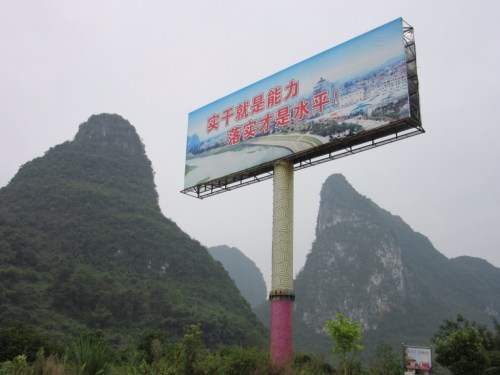
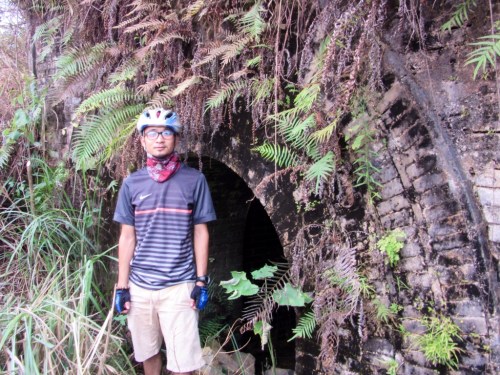

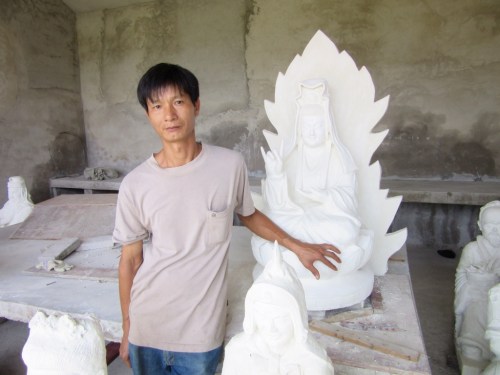
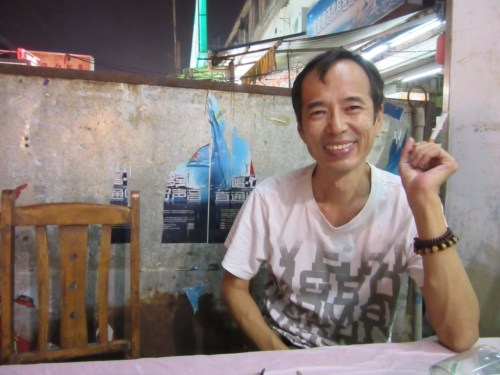
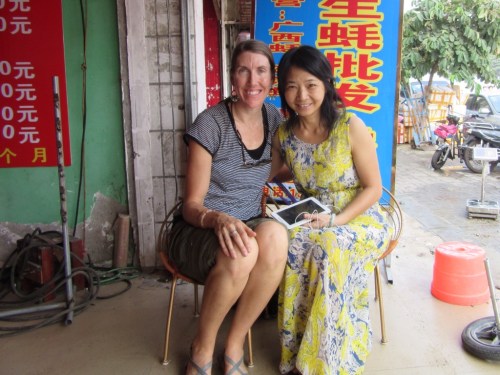
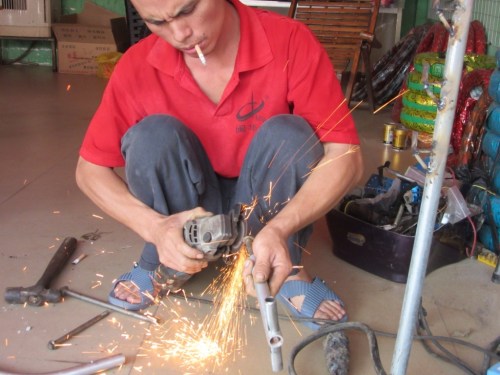
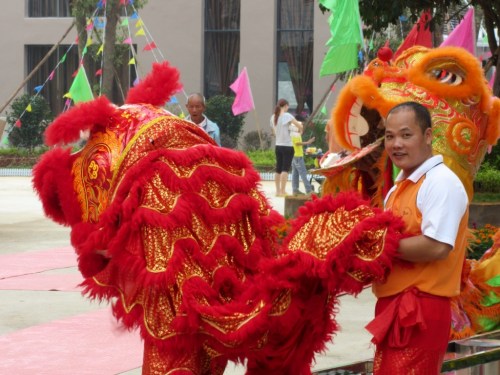
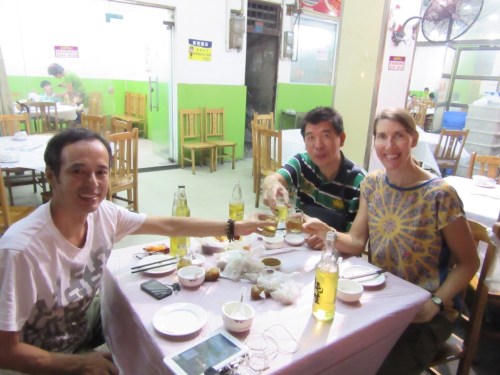
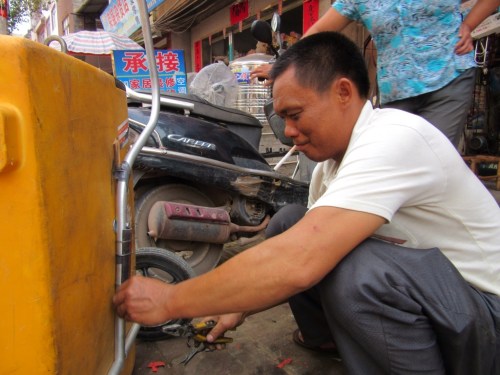


Thank you so much for sharing your adventure. This entry (and your beautiful photos) is a wonderfully insightful summary of your trip, and surely a very positive one. I know you are a fine ambassador and undoubtedly exposed anti American propaganda for its distortions. You are a very brave and wise young woman. I want to be able to continue to “follow” you and your adventures and achievements . You give me hope for the future.
Jill, thank you. Most of the Chinese people I talked to were, if anything, enthralled by America and surprised to learn that we too have poverty and injustice, albeit on a much smaller scale. But, probably those people willing to talk to me were a self-selecting group. There were others who didn’t want to talk politics with me. This was perhaps because they weren’t so keen on the US and too polite to say so to my face – or maybe they were just afraid to speak their mind? I don’t know. There’s so much more I wish I could understand about China. But I’m in Thailand now, soaking up a very different sort of vibe. Thanks for reading!
Sent from a little gadget – please forgive brevity and typos!
>
Hey Autumn! I know what you mean about being stared at. Kate and I traveled in China for two months in 1984 when it first opened to travelers not on official tours. On the trains and in the streets babies would cry at the sight of “ghosts,” that would be Kate and me. In provincial capitals small crowds of 25-40 people would follow us down the street. But, we also experienced the some of the same warmth you felt. Whenever we got on a train, word would spread of the foreigners and within an hour someone who had studied engineering at the University of Michigan would appear to practice their English with us as other gathered around to watch. Sounds like its changed and not changed. Keep up the posts and enjoy!
Beth
Wow Beth that sounds like quite an experience. Thanks for saying hi, give a hi-five to Gloria, Denny and Jerard for me.